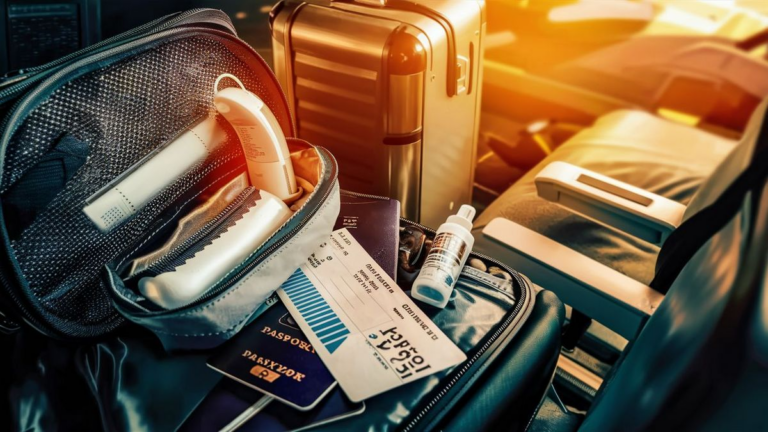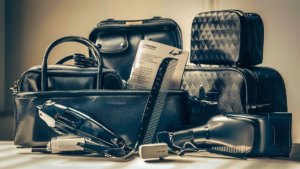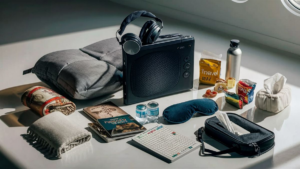Planning air travel can be stressful, especially for individuals with medical conditions that require specific medications, such as asthma sufferers who rely on inhalers. The question often arises: Can you take an inhaler on a plane? Let’s delve into the details to ensure a smooth travel experience.
Regulations and Guidelines
Most airlines and aviation authorities allow passengers to carry inhalers aboard planes for medical purposes. However, it’s crucial to adhere to certain regulations and guidelines to avoid any inconvenience or confusion during security checks.
Security Screening
When passing through airport security, passengers are typically required to present medications separately from their carry-on luggage for inspection. Inhalers fall under the category of medical devices, and TSA (Transportation Security Administration) guidelines state that they must be screened separately.
Prescription Requirements
While it’s generally permissible to carry inhalers onboard, it’s advisable to have a prescription or doctor’s note on hand, especially if traveling internationally. This documentation can serve as proof of medical necessity in case of any queries from airport or airline staff.
Storage and Accessibility
During the flight, passengers should keep their inhalers readily accessible, preferably in their carry-on bags or pockets. It’s essential to have easy access to medication in case of an asthma attack or sudden onset of symptoms.
Temperature Considerations
It’s important to store inhalers at room temperature and avoid exposing them to extreme heat or cold, as this can affect their effectiveness. If traveling to destinations with harsh climates, passengers should take measures to protect their medication from temperature fluctuations.
Additional Precautions
For individuals with severe asthma or respiratory conditions, it may be advisable to carry spare inhalers in case of loss, damage, or unexpected delays. Additionally, it’s wise to inform airline staff or flight attendants about any medical conditions or special requirements before boarding.
International Travel
When traveling internationally, passengers should familiarize themselves with the specific regulations of the countries they are visiting regarding the importation of medications. Some countries may have restrictions or requirements for carrying certain types of medications across borders.
Language Barriers
In countries where English is not widely spoken, it can be helpful to carry a translated copy of your prescription or a doctor’s note to facilitate communication with local authorities or healthcare providers, if necessary.
Customs Declarations
When passing through customs, travelers should declare any medications they are carrying, including inhalers, to avoid any misunderstandings or potential legal issues. Most countries allow passengers to bring reasonable quantities of medication for personal use.
In summary, yes, you can take an inhaler on a plane, but it’s essential to comply with relevant regulations and guidelines to ensure a hassle-free travel experience. By following these tips and taking necessary precautions, passengers can travel confidently with their essential medications and enjoy their journey with peace of mind.
Frequently Asked Questions
Here are some frequently asked questions regarding taking inhalers on planes:
| Question | Answer |
|---|---|
| 1. Can I carry multiple inhalers? | Yes, it’s advisable to carry spare inhalers, especially for individuals with severe asthma or respiratory conditions. |
| 2. Are there any restrictions on the type of inhalers I can bring? | Most airlines and countries allow common types of inhalers, but it’s essential to check specific regulations, especially when traveling internationally. |
| 3. Can I use my inhaler during the flight? | Passengers can use their inhalers during the flight if needed. It’s recommended to inform flight attendants if assistance is required. |
| 4. What should I do if I lose my inhaler during the trip? | Notify airline staff or flight attendants immediately if you lose your inhaler. They may be able to assist or provide guidance on obtaining a replacement. |
Managing Asthma While Traveling
Aside from carrying inhalers, there are additional steps individuals with asthma can take to manage their condition while traveling:
- Research healthcare facilities at your destination in case of emergencies.
- Avoid triggers such as smoke, dust, and strong odors.
- Stay hydrated and get adequate rest during the journey.
- Consider travel insurance that covers medical emergencies.
See also:






